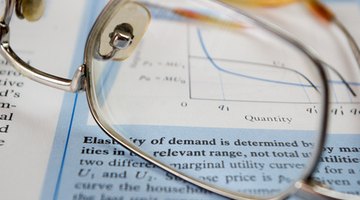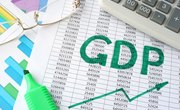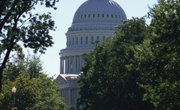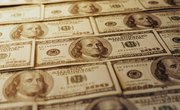Deflation defines a downward trend in the cost of goods and services. Recession marks a widespread dip in economic activity. An economic depression, less easy to define, is a protracted recession.
Deflation
A deflationary cycle sees a general dip in the cost of goods and services. On the demand side, consumers reduce their expenditures as prices continue to decrease, opting to wait and make their purchases at a lower cost. This can prolong and worsen deflation. On the supply side, business owners and employers are less likely to make new hires or investments. Studies suggest deflation occurs when productivity increases are coupled with decreases in money-supply. Runaway deflationary cycles may lead to economic recession.
Recession
A recession is a broad downturn in economic activity, affecting every aspect of an economy's health. Household income, investments, new hires, commercial profits and employment all suffer in a recession. Deflation, generally believed to be a critical cause of recessions, is also an effect of them, as consumer spending drops and bankruptcies and foreclosures increase. An unchecked recession may lead ultimately to an economic depression.
Depression
An economic depression is a severe, protracted drop in economic activity. An economy in depression suffers a general reduction of total output. Spending, employment, investments, profits and income all decrease. Though the primary difference between a recession and a depression is one of duration, there is scant consensus among economists as to when one becomes the other.
Prevention/Solution
According to Keynesian economists (adherents to the monetary philosophies of John Maynard Keynes), deflationary cycles should be met by federal intervention. Tax cuts and increased federal spending are methods used to expand money supply. Monetarist economics suggests reducing interest rates, which makes borrowed money more affordable. More conservative approaches to dealing with deflationary cycles, such as the laissez faire school of thought, call for the increased removal of government regulations in the economy.
Expert Insight
Most economists believe that deflationary cycles and recessions are inevitable and unavoidable. According to the National Bureau of Economic Research, the U.S. economy has experienced 32 cycles of expansion and contraction since 1854, averaging over that period 17 months of contraction versus 38 months of expansion.
Related Articles
References
Writer Bio
Waller Starky is a teacher of creative writing as well as a novelist and playwright, and has been writing professionally since 2007. His work has appeared in the online journals Superstition Review, Pindledyboz, SwitchBack, EdificeWrecked, Armageddon Buffet and more. He has a Bachelor of Arts in literature from the University of North Carolina-Asheville and a Master of Fine Arts in playwriting from Adelphi University.











